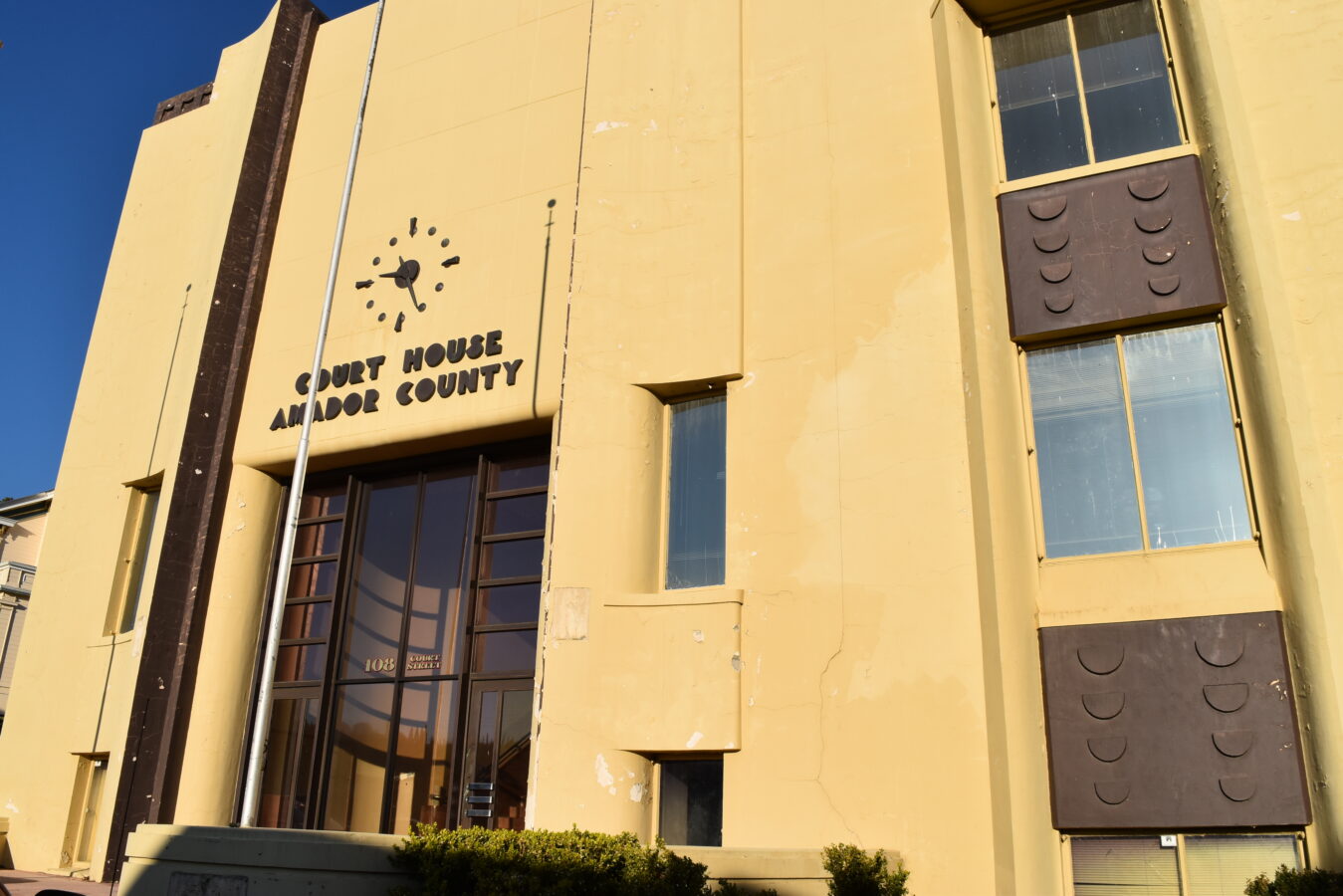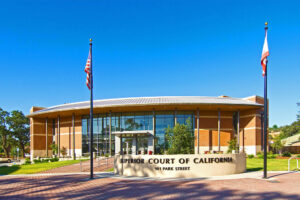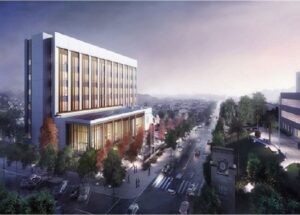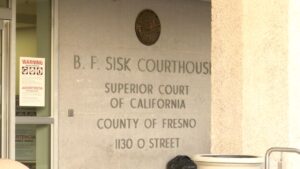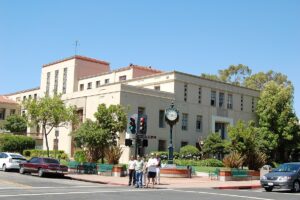Amador County Superior Court
The Amador County Superior Court serves the residents of Amador County, California, as part of the California Superior Court system. The court handles all manner of criminal, civil, family, probate, and juvenile cases within the county. With roots stretching back to the 1850s, the Amador County Superior Court has a long history of serving justice in this rural Mother Lode county. Today, the court operates out of a historic courthouse in the county seat of Jackson. The court continues to adapt to the needs of Amador County residents while upholding the high standards of justice in California.
History of Amador County Superior Court
Establishment and Early Years
The Amador County Superior Court was established shortly after California became a state in 1850. Amador County itself was formed in 1854 out of parts of Calaveras County. The new county government made Jackson the county seat. Court proceedings were originally held in local homes and businesses until a brick courthouse was constructed in Jackson in 1858.
The early Superior Court judges rode circuit through Amador County’s boom towns, holding court proceedings in places like Drytown, Fiddletown, and Plymouth. Major cases in the 1850s and 1860s dealt with claim jumping, mining disputes, robbery, and murder. The Superior Court tried both criminal and civil cases during California’s early statehood.
Notable Early Cases
Some early cases give a glimpse into law and order issues in Amador County’s mining heyday. In 1859, the court heard the People vs. Fricot case, in which a man was accused of stabbing someone at a fandango party in Drytown. The defendant was found guilty of assault with a deadly weapon.
Another case from 1859, People vs. Fox and Stephens, dealt with two men accused of robbery and claim jumping in the Big Bar mining area along the Mokelumne River. After a week-long trial, the jury convicted them of robbery.
Expansion and Developments
As Amador County’s population grew through the late 1800s, the Superior Court expanded to handle more cases. The mining economy went through booms and busts during this era, but agriculture, ranching, and commerce created stability. New courthouses were constructed in Jackson in 1869 and 1913 to meet the county’s judicial needs.
Superior Court operations modernized in the early 1900s. Superior Court judges no longer had to ride circuit, as transportation improved within the county. Stenographers and secretaries assisted the court reporters starting in 1907. This improved record keeping and the justice process.
Overview of Amador County Superior Court Today
Jurisdiction and Types of Cases
Today, the Amador County Superior Court is part of the unified California Superior Court system. It has jurisdiction over all felony criminal cases, civil cases with more than $25,000 in controversy, family law, probate, juveniles, and appeals from lower courts.
The Superior Court handles a wide range of legal matters on a daily basis, including:
- Criminal cases: felonies, misdemeanors, traffic violations, DUIs
- Civil cases: small claims, personal injury, contract disputes
- Family law: divorce, child support and custody, domestic violence
- Juvenile cases: juvenile crimes and dependencies
- Probate: wills, trusts, conservatorships, guardianships
Location and Facilities
The Amador County Superior Court is located in the Historic Courthouse building at 500 Argonaut Lane in Jackson. This grand Beaux Arts style building was constructed in 1913 to replace earlier courthouses. It was fully renovated and restored starting in the 1980s.
The courthouse has three courtrooms, clerk’s offices, a law library, and other facilities to serve the public and legal community. There are also holding cells and inmate transport facilities. Security measures include a screening station upon entry.
Judges and Staff
The Amador County Superior Court currently has two judges who are elected by county residents. The judges oversee all court operations and proceedings. Commissioner cases on certain matters as delegated by the judges.
The court has a staff of deputy clerks, court reporters, court interpreters, mediators, administrators, and other support personnel. The District Attorney’s Office prosecutes criminal cases in Superior Court.
Daily Operations and Proceedings
The Amador County Superior Court is open Monday through Friday from 8 AM to 4 PM, except on court holidays. Each day, the court handles arraignments, pre-trial conferences, motions, family law matters, small claims, traffic citations, and other legal business on its dockets.
Superior Court judges preside over trials, sentencing hearings, and other proceedings in the three courtrooms. Jury trials usually take place on Tuesdays through Thursdays. Attorneys, plaintiffs, defendants, witnesses, court reporters, and jurors participate in the legal process. Hearings are generally open for public observation when court is in session.
Court Services and Resources
The Amador County Superior Court offers several services and resources to assist court users and ensure accessible justice for all. These include self-help assistance, family law facilitators, mediation, court reporters, and jury duty.
Self-Help Center
The court has a Self-Help Center located in the courthouse. This provides information and resources for people representing themselves in court without an attorney. The center has sample forms and guidance on legal procedures for issues like small claims, divorce, child custody, and landlord-tenant disputes. Appointments may be available for more detailed assistance.
Family Law Facilitator
For help with family law matters like divorce, child support, and custody, the court has a Family Law Facilitator on staff. This person can provide educational materials, court forms, document reviews, and referrals to assist people with the family law process and procedures. They help ensure both parties understand their rights in family law cases.
Mediation and Arbitration
Many civil disputes and family law cases go through mediation services at the court. Mediators help the parties negotiate voluntary settlements, property division, custody arrangements, and other issues. For small claims cases, arbitrators may hear the cases and make binding decisions. This saves time and expense for litigants.
Court Reporters
Official court reporters attend each court session and hearing to record and transcribe the word-for-word proceedings. This creates the official record of trials, hearings, and other legal matters. Court reporters are highly skilled professionals essential to judicial proceedings.
Jury Service
Serving on a jury when called is a civic duty. The court has an automated system to randomly select jurors from county records. Jurors receive a small payment for their service. Employers are required to provide time off for jury duty.
Specialty Courts and Programs
The Superior Court operates several specialty courts and diversion programs to better address certain case types and offender needs. These include:
Drug Court
Drug court provides supervised substance abuse treatment and community resources as an alternative to incarceration for non-violent offenders. The goal is to reduce recidivism and improve public health and safety. Participants have regular appearances before the drug court judge as they progress through treatment phases.
DUI Court
DUI Court is a structured program providing treatment, intensive supervision, and personal accountability for repeat DUI offenders. Like drug court, it serves as an alternative to jail time for eligible participants. The court team closely monitors their sobriety and progress over 12-18 months.
Veterans Treatment Court
Veterans who commit certain crimes related to PTSD, trauma, substance abuse or mental health conditions may enter the Veterans Treatment Court program. Mentors and the VA help connect veterans with counseling, health care, housing, and other services to get their lives back on track.
Traffic School
For minor traffic violations like speeding, the court may allow attendance at traffic school in lieu of assessing points. Available both online and in-person, these courses teach traffic safety and awareness. Insurance companies may also offer discounts upon completion.
Community Service
Performing community service is one alternative sentence the court can impose for low-level offenses instead of fines or jail. Offenders work for non-profit community organizations, acquiring job skills while giving back. Typical assignments include maintenance, cleanup, food banks, and elder care.
Contacting and Accessing the Court
There are several ways to find information and access Amador County Superior Court services:
Hours and Location
The courthouse is open from 8 AM to 4 PM on weekdays except court holidays. It’s located at 500 Argonaut Lane in Jackson. Some services require appointments so contact the specific department in advance.
Online Services
The court’s website at www.amadorcourt.org provides forms, schedules, fee information, local rules, and other resources. Certain functions like looking up case files, paying fees, and scheduling hearings can be done online.
Phone and Email
Call the court clerk at (209) 223-6474 during business hours for questions. Reach specific departments directly through the phone menu. Email inquiries may be sent to [email protected].
CONTACT INFORMATION 209-257-2620, Civil (Phone Tree)
209-257-2688, Collections Department
(209) 257-2600 Amador County Court contact number
Amador County Superior Court address
500 Argonaut Ln
Jackson, CA 95642
Amador County Superior Court Calendar
View Amador County Superior Court calendar by date for current, recent and upcoming court schedules.
To verify the appearance date or the status of the filing of criminal charges, access the court’s online case or calendar information for both out of custody and in custody defendants. On the court date, check the posted calendar to verify the courtroom department number and hearing time.
Notable Cases and Events
The Amador County Superior Court has handled several high-profile cases and undergone facility changes over the past half century.
High Profile Trials
In one closely-watched trial in 1990, the court heard the People vs. Charles Ng case. Ng was accused of committing murder sprees across Northern California. The lengthy trial drew widespread media attention before resulting in a death sentence.
Another notorious case went to trial in 2010 when Raechel and Joseph McStay were accused of killing their small children. The jury convicted both defendants on multiple counts of first and second-degree murder.
Changes to Court Operations
In response to California’s unprecedented budget cuts, Amador Superior Court restricted public access hours in 2013 as a cost-saving measure. Some services were moved online or to appointment only. The full courthouse reopened in 2015 after state court funding was partially restored.
Courthouse Expansions and Improvements
Several renovation projects over the past 30 years have upgraded and expanded the historic Jackson courthouse. This includes making it ADA compliant, refurbishing courtrooms, and enhancing building security. The focus has been on improving public access while preserving the courthouse’s original grandeur.
Conclusion
The Amador County Superior Court has served as a pillar of justice and civic life since the county’s formation over 150 years ago. From its frontier mining camp origins to today’s modern proceedings, the court has adapted its operations to fit the community’s needs. With informed judges, innovative programs, and dedicated staff, the Amador Superior Court helps ensure equal justice, resolve legal disputes, uphold the rule of law, and promote social order in this historic Mother Lode county. The court will continue its critical role through whatever the future may hold.
FAQs
What types of cases does the Amador County Superior Court handle?
The Superior Court handles all felony criminal cases, civil cases over $25,000, family law, probate, juvenile cases, and appeals from lower courts in Amador County.
How can I look up court records or case files?
Court case documents can be searched online through the Superior Court website. Files may also be reviewed in person at the courthouse clerk’s office.
How can I pay traffic tickets, fines, or fees?
Traffic citations and court-ordered fines and fees can be paid online through the court’s website. Payments may also be made by phone, mail, or in-person at the courthouse.
Where can I obtain court forms and get help filing them?
The Superior Court has a Self-Help Center located in the courthouse to provide forms and assistance with the filing process. Many forms and instructions are also available on the court’s website.
How can I do jury service or get postponed if needed?
Contact the Jury Commissioner’s Office for answers on jury duty. Some limited postponements are allowed with proper documentation. Most jury matters can be addressed online.

